News
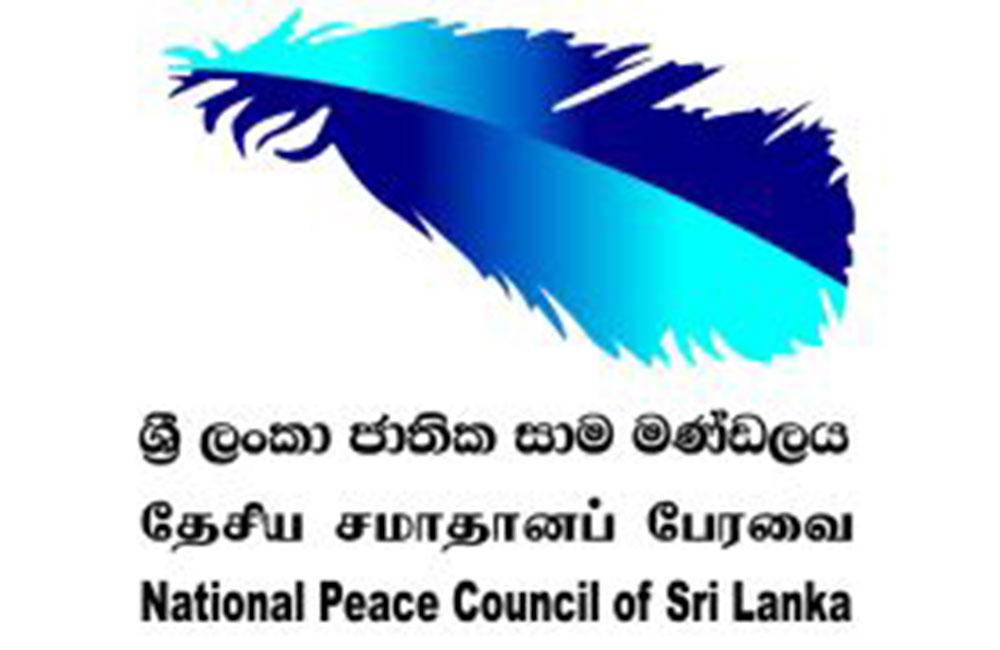
Sri Lanka must not go through another cycle of violence: National Peace Council
After enduring three decades of civil strife and internal war, and now having to answer to the international community at the UN Human Rights Council in Geneva, Sri Lanka must not go through another cycle of violence which targets Sinhalese, Tamils or Muslims, the National Peace Council (NPC) said in statement today.
"We call on the government and state institutions, especially the police, to take immediate deterrent and punitive measures against the miscreants and those giving them political and ideological backing", the NPC announced.
NPC alleged that those who foment violence against the Muslim community are citing unfounded allegations of introducing birth control and other drugs into food packets.
They emphasized that incidents of violence against the Muslim and other minority communities are both political and systemic and that these are often engineered citing fear, distrust and insecurities and the building of enemy images of the victim communities.
"Until the national political leadership takes firm and determined action at this time there is an increasing likelihood of Sri Lanka a new cycle of communal violence that will become uncontrollable. A similar phenomenon was seen, with dreadful consequences, in the early 1980s when communal sentiment was directed against the Tamil which culminated in the anti-Tamil pogrom of 1983", the NPC added.
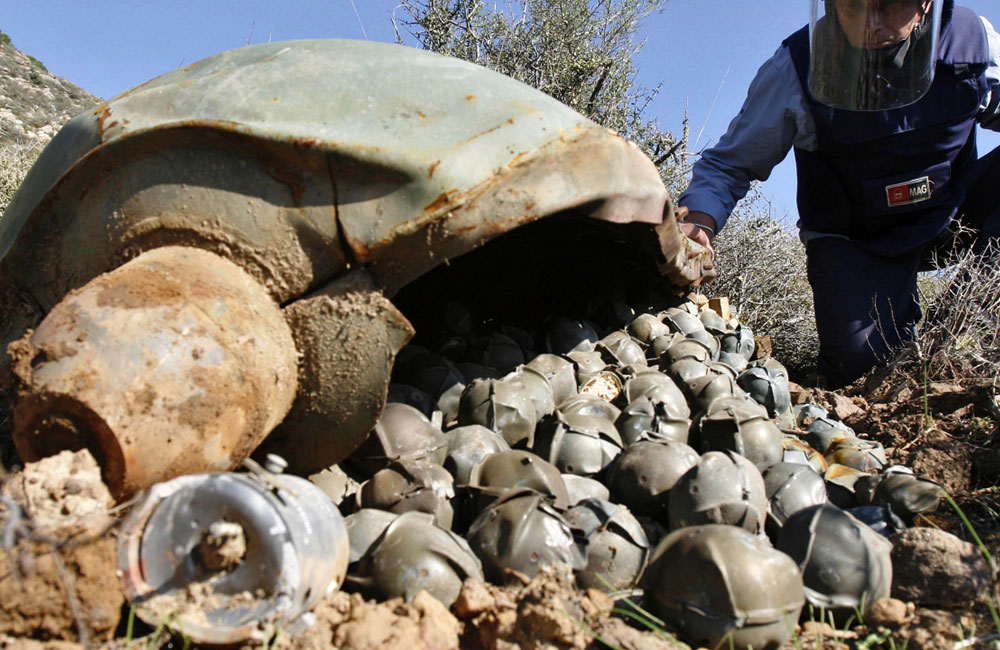
Sri Lanka to accede to the International Convention on Cluster Munitions
Demonstrating Sri Lanka's commitment not to use cluster munitions for sustainable peace and stability through humanitarian disarmament, the government has decided to accede to the Convention on Cluster Munitions that has been signed by 108 countries.
Although various parties have made allegations that Sri Lanka used cluster bombs during the armed conflicts, there is no evidence that Sri Lankan security forces had used cluster munitions, a recent statement on cabinet decisions said.
"Sri Lanka has never used cluster munitions during the war and the Government of Sri Lanka is of the stance that cluster munitions will not be used in the future either," the statement said.
Accordingly, a proposal presented by President Maithripala Sirisena in his capacity as, Minister of Defense, to accede to the Convention on Cluster Munitions, received the cabinet approval.
The Convention on Cluster Munitions (CCM) prohibits all use, stockpiling, production and transfer of Cluster Munitions. The CCM was adopted in Dublin on 30 May 2008. The Convention entered into force on 1 August 2010 and became binding international law after ratified by 30 States had ratified it.
Source : Colombo Telegraph
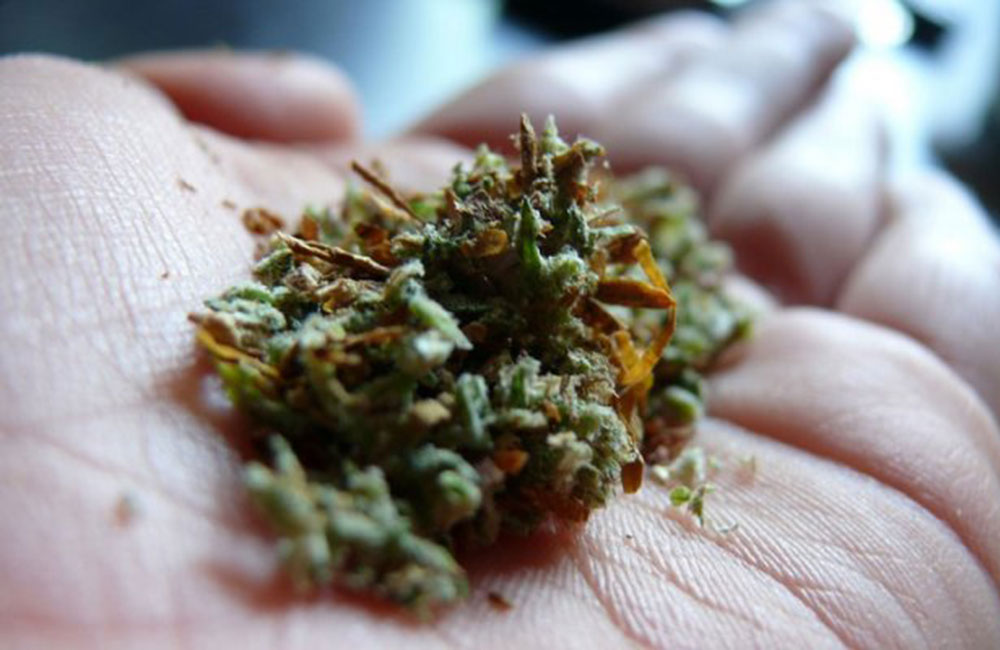
STF nabs Rs. 60 million worth Kerala ganja haul
The Special Task Force yesterday seized a large haul of Kerala Ganja amounting to 400 Kilograms and worth over Rupees 60 million on a tip-off received. According to the Police, the information was first received by the Sri Lanka Navy, which in turn was passed on to the STF for necessary action.
In the special raid, the STF intercepted a van carrying the haul near the Koppara junction in Negombo yesterday afternoon. The team also arrested one individual who was transporting the haul Police said.
The seized haul is estimated to be worth over Rupees 60 Million the Police confirmed.
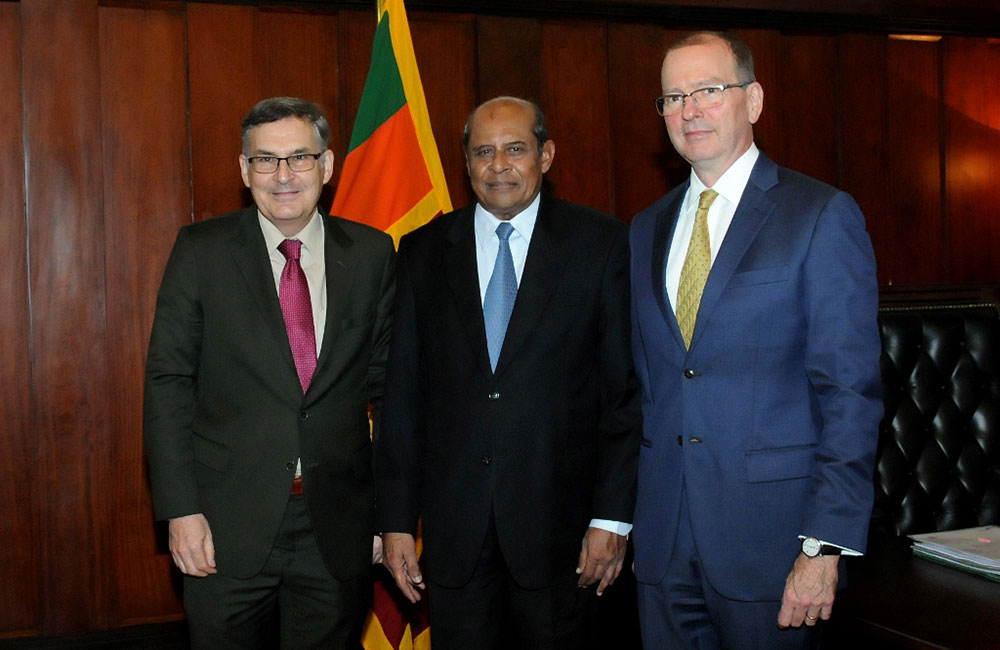
Canada to help Sri Lanka advance reconciliation initiatives
Assistant Deputy Minister for Asia Pacific of Global Affairs Canada, Donald Bobiash said that Canada is eager to help Sri Lanka advance reconciliation initiatives in Sri Lanka. He said this after meeting Sri Lanka Foreign Minister Tilak Marapana at the Ministry of Foreign Affairs in Colombo on Monday (26).
Discussions included exploring possibilities for improving trade, promoting Canada as a destination for Sri Lankan students, and setting up a mechanism for structured regular engagement between Canada and Sri Lanka, the Foreign Ministry said.
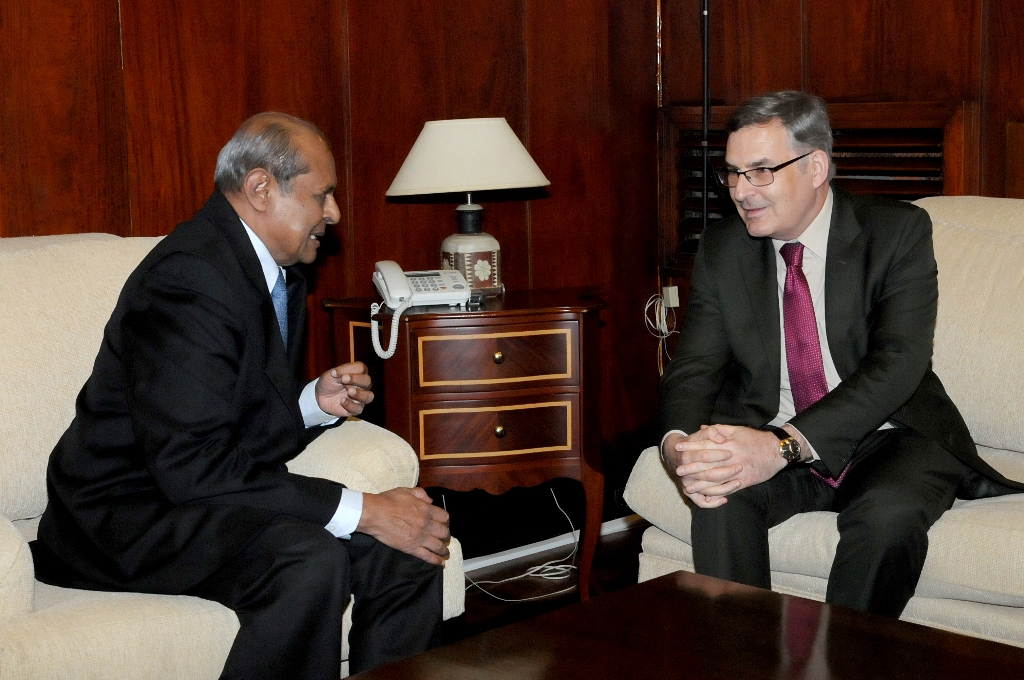
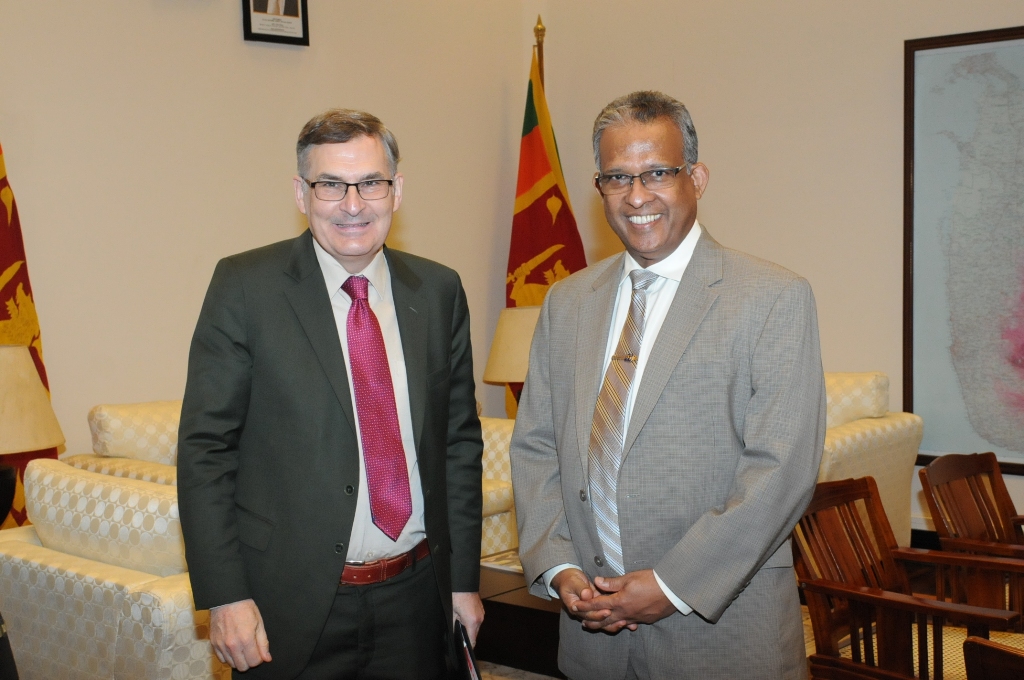
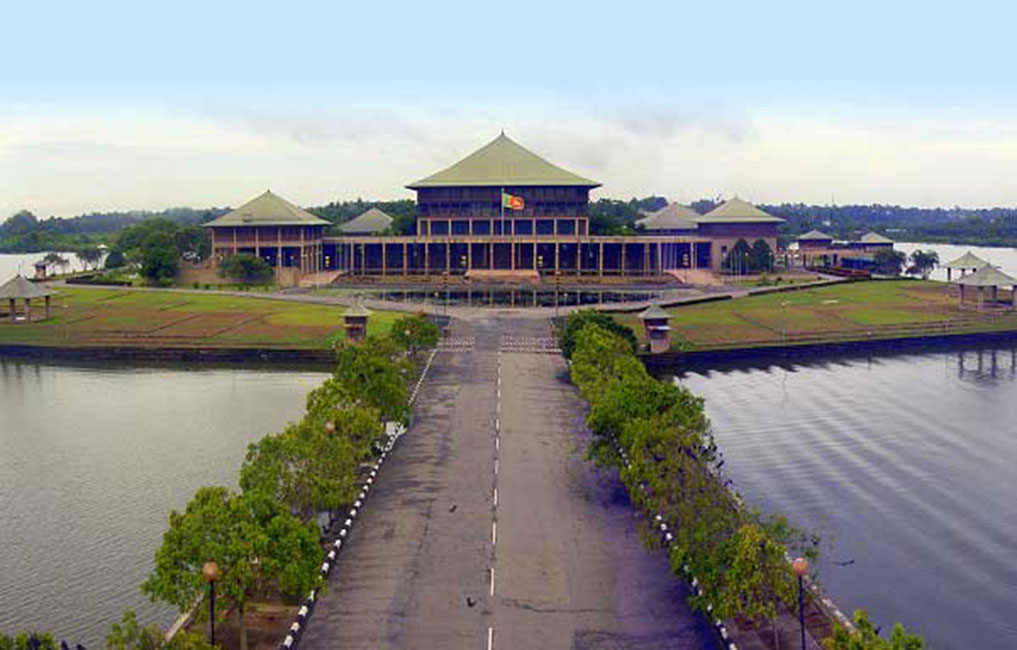
Parliament to debate on enforced disappearances bill this week
The proposed draft legislation to criminalise forcible disappearances will be taken up for debate in Parliament this week, even as the country grapples with the legacy of 65,000 people still missing after two insurgencies and a 26-year civil war.
The draft Bill for Protection against Enforced Disappearances which was postponed twice in Parliament previously, has been rescheduled for debate this Wednesday, March 7, after which the Bill will be put to the vote, concluding a full day’s debate, Parliamentary sources told the Sunday Observer yesterday.
The Government presented the International Convention for the Protection of All Persons from Enforced Disappearances Bill in Parliament on March 7, 2017. The Bill was scheduled to be taken up for debate on July 5 and September 19 last year, but the Government deferred it due to objections from various groups.
Meanwhile, the Human Rights Commission of Sri Lanka in a letter addressed to President Maithripala Sirisena, last October, urged him to give leadership to enact the proposed Bill. The HRC letter signed by its Chairperson Dr. Deepika Udagama observed that this legislation is a positive step towards addressing the long history of disappearances in Sri Lanka and stemming impunity for human rights violations.
However, the Joint Opposition raised objections to the Bill, stating that it posed a threat to the security forces.
The Government clarified that the Bill was not retrospective and its main objective was to ensure that every Sri Lankan citizen enjoys the right to freedom to live without fear of being a victim of enforced disappearances or abductions.
The debate is likely to take a tumultuous turn if the debate goes through, much like the uproar in the House when the Office of Missing Persons Act was pushed through by the National Unity Government in August 2016. To pass the OMP Act the Government outmaneuvered the pro-Rajapaksa JO after it launched a sustained effort to obstruct proceedings and prevent the Bill’s passage in Parliament.
The International Convention for the Protection of All Persons from Enforced Disappearance Bill was gazetted by order of the Prime Minister on February 9 following cabinet approval.
The Bill, if enacted on Tuesday, will give effect to the UN International Convention for the Protection of All Persons from Enforced Disappearance that the Government of Sri Lanka ratified in May 2016. Under the convention, the country has an obligation to enact local laws to criminalise enforced disappearance and offer protection to victims of the crime.
According to Section 3 of the Bill, any public officer or person acting with the authority or support of the State, who “arrests, details, wrongfully confines, abducts, kidnaps” and refuses to acknowledge the arrest, detection, confinement or abduction, conceals the fate of such a person or refuses to disclose the person’s whereabouts, will be guilty of the crime of enforced disappearance.
Under the provisions of the Enforced Disappearances Bill, the crime is punishable by a prison term not exceeding 20 years and a fine of Rs. 1 million. Persons convicted of the crime of enforced disappearance will also be liable to pay compensation of no less than Rs. 500,000 to a victim.
The Enforced Disappearances Bill must be supported by a simple majority of the House to be enacted into law.
Source : Sunday Observer

Facebook to remove separate news feed
Facebook announced on Thursday that it won't be splitting the News Feed into two after all, CNBC reported.
The social media site said it was ending testing of the change, which would have pushed publisher content onto a second feed away from posts by family and friends.
"People don't want two separate feeds," Adam Mosseri, Head of News Feed, said in a blog post. "In surveys, people told us they were less satisfied with the posts they were seeing, and having two separate feeds didn't actually help them connect more with friends and family."
Users in the six test markets — Bolivia, Cambodia, Guatemala, Serbia, Slovakia and Sri Lanka — reported separating the feed made it harder to find important information, Mosseri said.
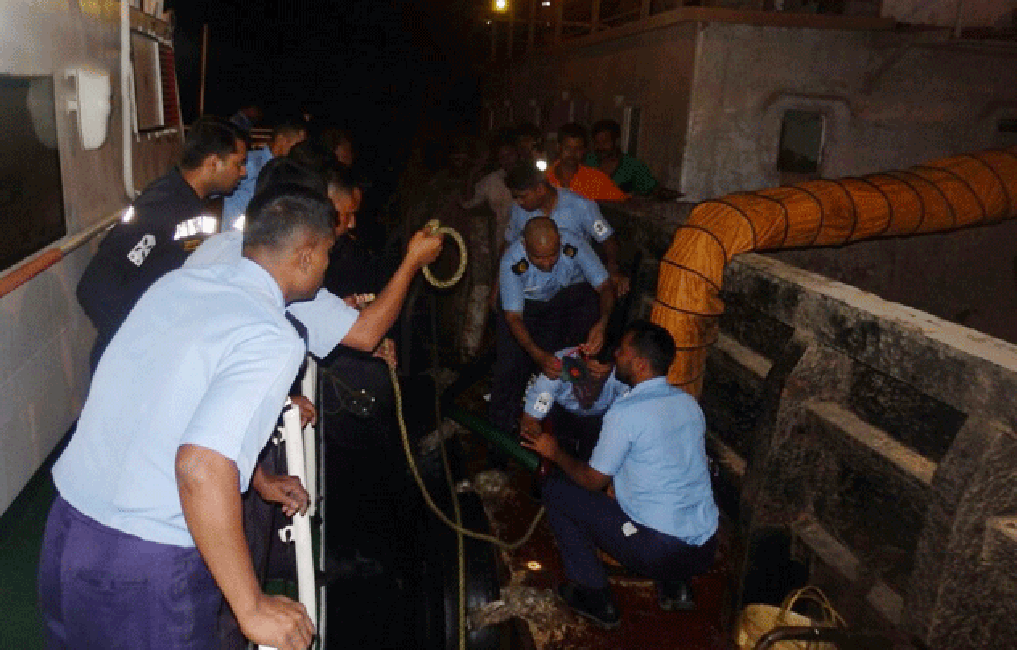
Indian Coast Guard saves Sri Lankan fisherman
A seriously injured Sri Lankan fisherman, identified as Malwatta Pathirannehalage Sunil Shantha (47), from fishing vessel (FV) Geeth Baba was evacuated and brought to Kochi on Saturday for hospitalizatio, the Indian Coast Guard reported.
The fishing boat 'FV Geeth Baba' with a crew of 5 was operating around 340 nautical miles (NM) west of Kochi coast. Sunil Shantha had sustained a serious head injury from the pick-up hook while fishing 98 NM off Cheniyakara Island.
The rest of the crew have already safely returned to Sri Lanka, the Indian Coastguard said.
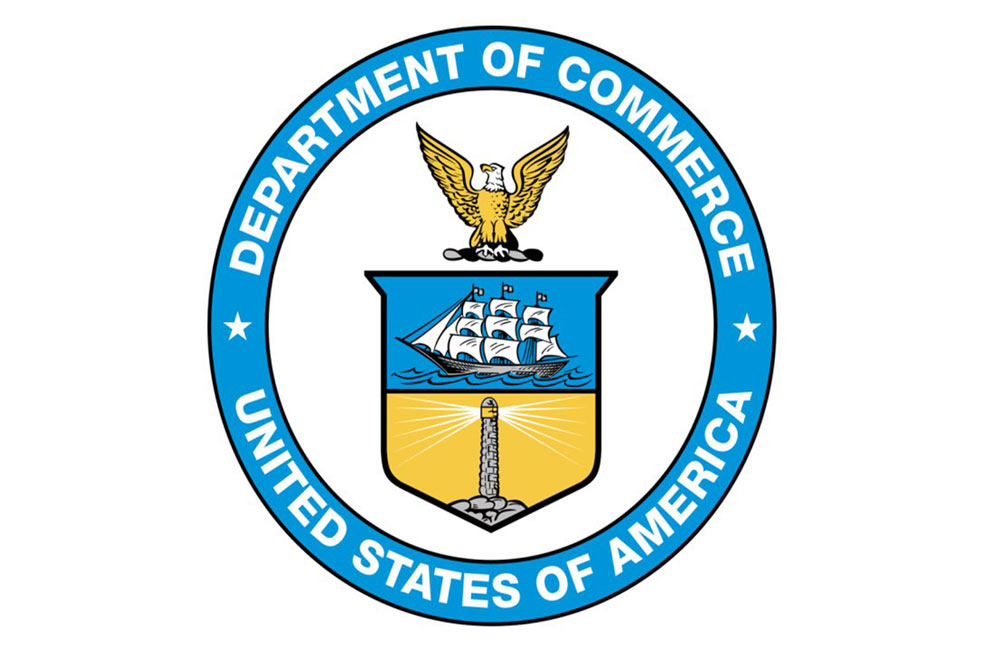
USA eager to expand open, fair and reciprocal trade: US Department of Commerce
Stephen Renna, Director of the Advocacy Center at the U.S. Department of Commerce, recently met with government leaders and U.S. companies in Colombo to discuss opportunities to increase U.S. exports to Sri Lanka. “The United States is eager to expand open, fair and reciprocal trade,” stated Stephen Renna during his visit.
American companies are some of the most dependable business partners anywhere in the world. Ambassador Keshap emphasized, “U.S. companies produce the highest quality goods and services with the highest standards for ethics, corporate social responsibility, employee benefits, and environmental awareness.”
Further, when selling goods and services to foreign governments, the U.S. Foreign Corrupt Practices Act makes it unlawful for U.S. firms and American citizens to pay bribes or otherwise violate the law. The values, practices, and international standards that American companies bring to the table make them the finest partners for improving standards and quality throughout business ecosystems.
Trade and investment are the engines of growth and employment, and the United States is Sri Lanka’s largest trading partner, purchasing around $2.9 billion (445 billion rupees) in Sri Lankan goods in 2017, sustaining tens of thousands of jobs in Sri Lanka. Those exports not only create employment, they bring nearly $7 million per day of hard currency into Sri Lanka, hard currency the Sri Lankan economy relies upon to lubricate the gears of commerce.
Last year, the United States exported $337 million of goods to Sri Lanka and there is tremendous opportunity for that figure to grow. American firms provide Sri Lanka with top quality, fair and reliable solutions. Sri Lanka however needs to expand transportation infrastructure, improve agricultural output, attract more tourists and provide and improve services for its citizens.
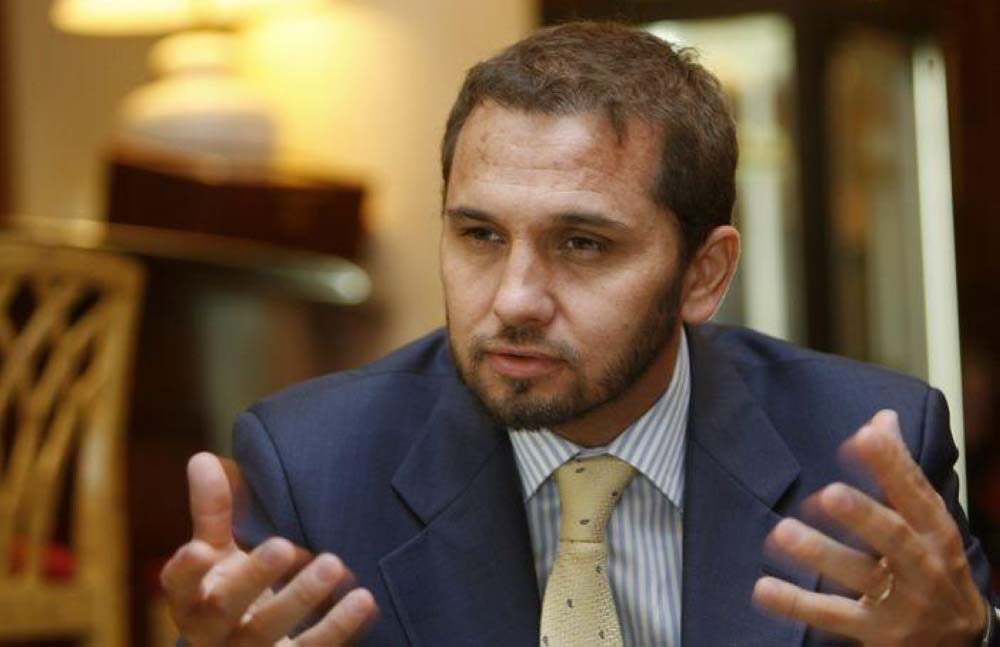
UN anti-mine envoy arrives in SL today
The visiting Special Envoy of the Anti-personnel Mine Ban Convention Prince Mired Al-Hussein of Jordan will arrive in the island today and is expected to visit Muhamalai, Jaffna in the Northern province to inspect the ongoing demining projects during his visit here this week.
Prince Mired is the brother of Prince Zeid bin Ra’ad Zeid al-Hussein, the United Nations High Commissioner for Human Rights. While in North, the Special Envoy will also interact with agencies that clear mines and meet the landmine victims.
The Special Envoy is scheduled to deliver a lecture at the Lakshman Kadirgamar Institute for International Relations and Strategic Studies on ‘The Ottawa Convention on Anti-Personnel Landmines: Asia’s Opportunities and Challenges’ on Tuesday 6 March at 5.30 p.m. He will be touring the country from 5 – 7 March 2018 at the invitation of the Government of Sri Lanka.
Prince Mired will be accompanied by Rehabilitation and Resettlement Minister D.M Swaminathan during his field visit to the Northern Province. The Special Envoy will also call on President Maithripala Sirisena, Prime Minister Ranil Wickremesinghe and Foreign Minister Tilak Marapana.
Prince Mired Raad Zeid Al-Hussein has served as the Chair of Jordan’s National Committee for Demining and Rehabilitation. After being appointed in 2009 as the Special Envoy to the Anti-personnel Mine Ban Convention, he has worked extensively with the UN and member countries to promote the banning of anti- personnel mines, worldwide.
Sri Lanka also took the lead on disarmament this week when it acceded to the Oslo Convention on Cluster Munitions (CCM) from March 1, 2018.
The Permanent Mission of Sri Lanka to the United Nations in New York deposited the instrument of accession to the Convention on Cluster Munitions (CCM) at the United Nations Headquarters in New York.
President Maithripala Sirisena, as the Minister of Defence, obtained the approval of the Cabinet of Ministers to accede to the CCM also known as the Oslo Convention.
“Sri Lanka’s accession to the Convention is a reflection of the country’s recognition of the widespread and long-term impact of such weapons and their negative consequences for economic and social development, particularly in former conflict affected areas.”
“It also signifies Sri Lanka’s continuous commitment to multilateral efforts in the field of disarmament,” the Permanent Mission of Sri Lanka to the UN said in a statement.
Source : Sunday Observer
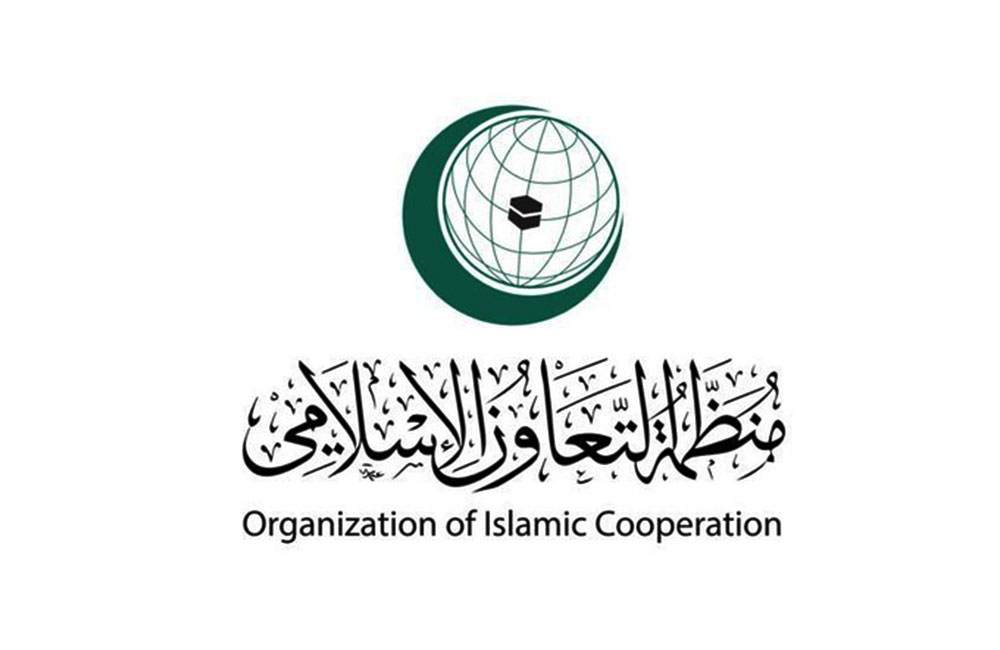
Concerned over attacks on Muslims in SL: Organization of Islamic Cooperation
The Organization of Islamic Cooperation (OIC) has expressed deep concern over the tense situation in Sri Lanka after a mosque, several hotels and vehicles owned by Muslims were vandalized by mobs in the town of Ampara, the Saudi Press Agency reported on Thursday.
While expressing its concern over the highly explosive situation in the island nation, the OIC stressed the need to protect the rights of the Muslim minority, foremost of which is the sanctity of places of worship. It said Muslims should be able to perform their religious duties without fear or harassment and there should not be any direct or indirect attacks.
The OIC also said Muslims should have the freedom to earn their livelihoods and conduct business under the full protection of the law.
The OIC secretary-general called on the government of Sri Lanka to proceed expeditiously with an investigation of such abuses and to ensure the safety and security of the Muslim minority while practicing their religious rights in accordance with all relevant international human rights conventions and instruments.
Meanwhile, an OIC delegation is visiting southern Thailand to assess the efforts of the Thai government to improve the plight of Muslims in the country. The visit was in line with a resolution of the OIC Council of Foreign Ministers. The delegation comprised ambassadors and representatives from Bahrain, Gambia, Indonesia, Jordan, Malaysia, Pakistan, Turkey and the OIC General Secretariat, SPA said.
The delegation visited Sai Buri district in Pattani province on Feb. 27 where the commander of the region Lt. Gen. Piyawat Nakwanich briefed it on the projects implemented by the government for Muslim communities under the "Bring People Home Project" and their impact on the people.
The OIC delegation proceeded to Yala province where it was received by the secretary-general of the Southern Border Provinces Administrative Center (SBPAC). The delegation held constructive talks with key officials regarding the educational and social programs being organized in the region.
The delegation welcomed these developments as a positive step and expressed the willingness of the OIC to contribute to the process of confidence building, dialogue and economic development in the region with the support of various OIC organs. The delegation reiterated the position of the OIC to support all peaceful initiatives that guaranteed the human rights of citizens and developed mutual understanding, coexistence and cooperation for the benefit of all communities in Thailand.
The delegation called upon the authorities to continue to take measures that would improve the lives of communities living under the emergency law in southern Thailand and ensure that security measures are not disproportionately affecting Muslims of the region.
The delegation encouraged the Thai authorities to accelerate the ongoing process of confidence building measures and to address the root causes of the communal tension through a comprehensive approach based on empowering the population of the southern provinces to assume their roles as full citizens and members of Thai society.
The delegation further welcomed the steps taken by the government of Thailand in cooperation with Malaysia for constructive dialogue with Muslim groups in the south of the country in order to prepare a road map to resolve existing problems.
The delegation reiterated the stance of the OIC that such dialogue should expand and be more inclusive so that other organizations and groups representing Muslims in southern Thailand can participate.
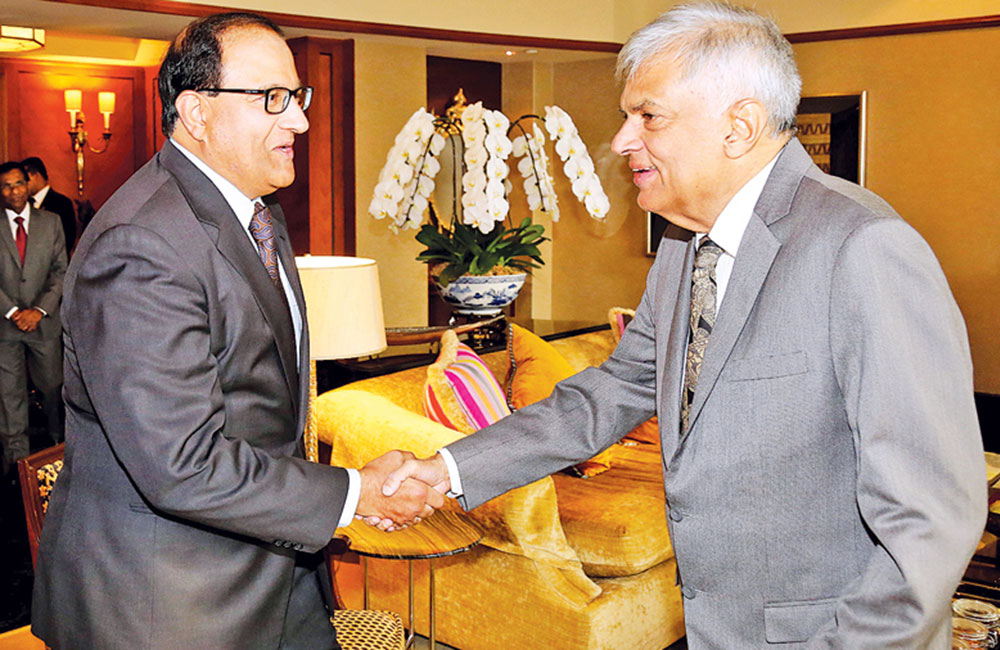
PM predicts bright future for Sri Lanka economically
Prime Minister Ranil Wickremesinghe speaking at the Investors Forum in Singapore assured the international investor community that Sri Lanka was committed to forging ahead with its reforms agenda.
He said Sri Lanka had put in place measures that would not only make it an attractive place to do business, but ensure that the country becomes the knowledge-based highly competitive economy it is poised to.
“Sri Lanka is on the path of becoming an attractive place for business in South Asia, one of the fasted growing regions of the world,” the Premier said. “Sri Lanka as an island is increasingly becoming a vital player in the region enabling us to punch above our weight, a lesson we learnt from Singapore,” the Premier said.
The Prime Minister reiterating further on the reform agenda said that Sri Lanka had taken numerous initiatives to stabilise and re-orient the economy.
“Moving from a growth model dependent on debt-fuelled public infrastructure spending to an outward looking one driven by private enterprises, exports, and Foreign Direct Investments,”the Prime Minister said.
The Prime Minister was delivering the Keynote Speech at the Investor Forum organised by the Colombo Stock Exchange, Securities and Exchange Commission of Sri Lanka and the Singapore Sri Lanka Business Association, held at the Four Seasons hotel in Singapore yesterday.
Referring to the ease of doing business, the Premier revealed that by mid-2018, the time taken to register a new business will reduce from six days to just one day. Finding land and registering property will be halved from 51 days to 26 days, and the procedures reduced from nine steps to two steps.
He elaborated further stating that they were introducing an ‘Electronic Single Window’ that would link dozens of state agencies dealing with international trade through a few clicks.
“Through the new Colombo International Financial City, the present Port City project, we are creating a unique business climate that is globally-competitive.
This new city will function as a special economic zone and have a conducive and transparent regulatory system. It will provide an environment for your companies like no other in this region.The enabling legislation is now in the preparatory stage. We plan to launch the gallery mid this year – you should visit,” the Prime Minister said.
Prime Minister Wickremesinghe added that the government was complementing these efforts with comprehensive trade policy reforms.
He mentioned the recent budget removed protectionist para-tariffs on over 1,200 items, with the rest slated for removal in 2018 and 2019. “We know we can leverage on our strategic location to expand market access. Therefore we are expanding our trade and investment relationships with a diverse set of countries, such as the US, EU, India, China, Singapore, Japan, Malaysia, Thailand, and Indonesia.”
The Prime Minister also spoke on the possibility of closing in on two bilateral agreements, an Economic and Technology Cooperation Agreement with India which would deepen the existing FTA and a comprehensive FTA with China.
“These agreements are an important part of the new ‘National Trade Policy’ launched last year, and are a linchpin in the ongoing trade policy reforms. They will add on to the advantage created by our access to the EU’s GSP+ facility. This means that through our preferential market access, any business located in Sri Lanka would be able to access nearly 3 billion people from Spain to China - we are probably one of the very few countries in the world that can claim this! This only adds on to our strategic geographical advantages – we are 1 hour from 5 fast-growing South Indian States, have quick access to the Bay of Bengal region, and only a few hours from South East Asia and the Middle East,”Prime Minister Wickremesinghe said.
The Prime Minister mentioned about attracting more Belt and Road projects from China adding that they expect a lot of investor interest in the new Logistics and Industrial Zones near the southern port of Hambantota, which is being developed with Chinese investment.
“Three other large industrial zones are being set up, including one in partnership with a private investor from Thailand. We also expect to develop tourist zones and domestic airports across the country, to facilitate the booming tourism industry.
A key initiative on this front will be a highway connecting Hambantota in the South, Colombo, and Kandy in the centre of the country. A highly developed economic infrastructure system connecting two ports, two international airports, 3 major cities,” the Premier said.
Referring to the macroeconomic front, the Prime Ministerhe added that when the Unity Government took over the economy in 2015, they had a challenging task where National debt had been mismanaged, and fiscal and monetary policy lacked discipline. “Since then, we have taken appropriate measures to build back our economy’s strength and resilience. We are very focused on fiscal consolidation, and the results are already visible – the tax to GDP ratio has improved, and ratings agencies are providing favourable outlooks. Next month, a new Inland Revenue Act will come into effect, providing a progressive, modern, and transparent income tax policy,” The Premier said.
“The tax incentives regime is now firmly written into the law, and is based on investment allowances. The top rate of income tax is now lower than many countries in the region. Other revenue initiatives – VAT reforms, predictability in tax incentives, digitization of revenue administration – are all part of the fiscal reforms we have embarked on, guided by the on-going IMF programme. The Exchange Control Act has been replaced by a new Foreign Exchange Act. The forecast for the “Sri Lanka Economy 2018” states amongst others that, Merchandise exports is anticipated to grow by 10.7%.”
Source : Daily News
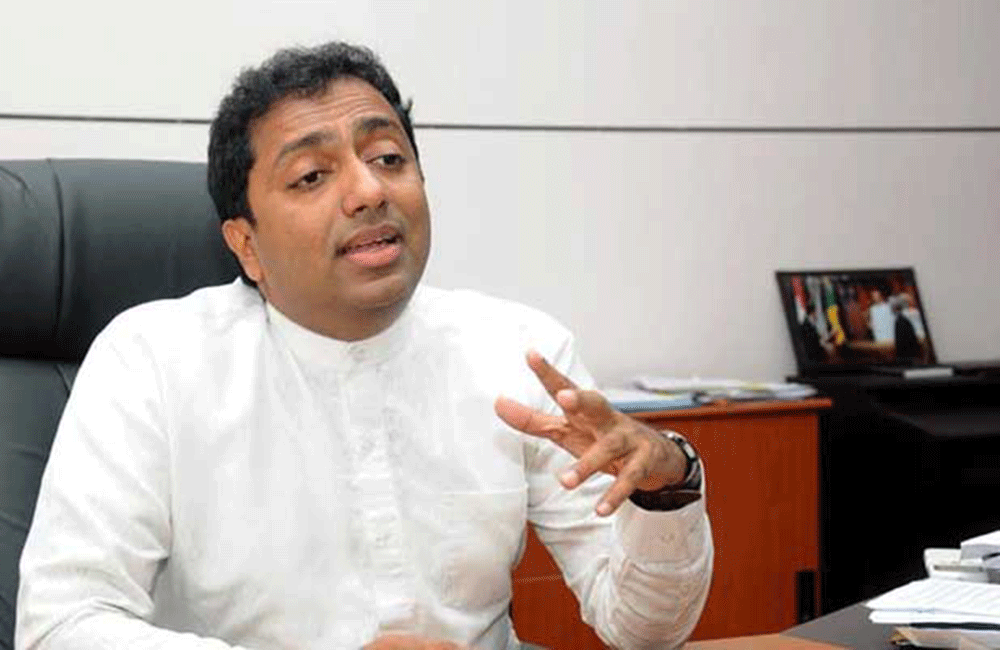
School Principals death: Disciplinary inquiries against 11 officials
The Education Ministry announced has announced that disciplinary inquiries against 11 officials including two Additional Secretaries will be taken over the death of a school principal during a leadership training programme.
Rohini Kumari Atapattu, who was the Principal of Suchi National School in Hambantota, died while attempting to climb a rope ladder as part of a training programme for Principals at the Wayamba Teacher Training Centre, in Wariyapola last month.
Education Minister Akila Viraj Kariyawasam ordered a Ministerial level inquiry on the incident and its report was handed over to the Minister on Wednesday.
The minister instructed his Secretary Sunil Hettiarachchi to implement all the recommendations in the report.
Source : Daily News
Page 466 of 510